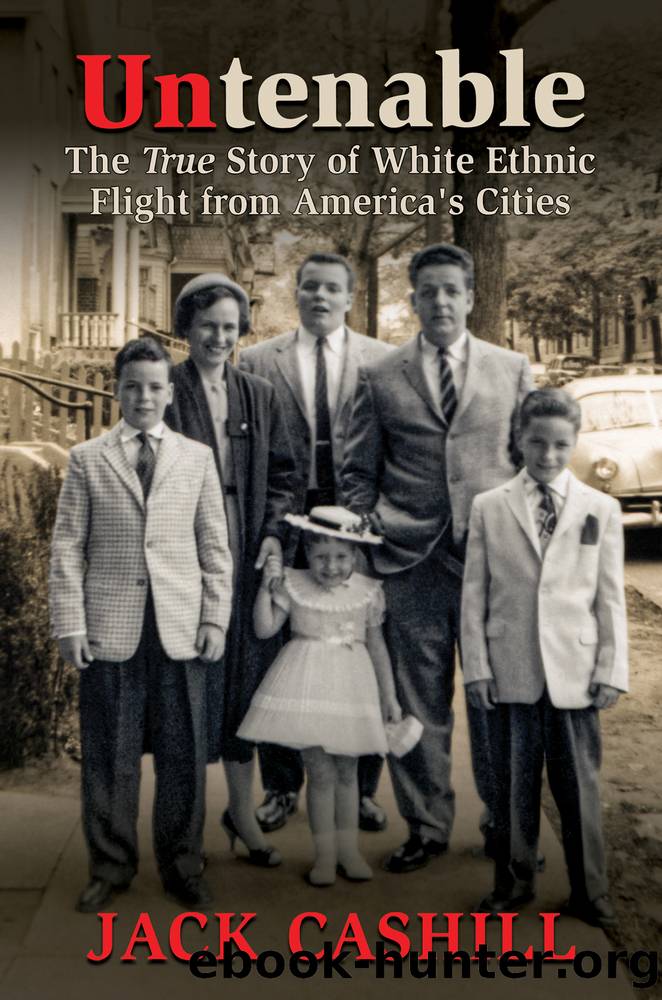Untenable by Jack Cashill

Author:Jack Cashill [Cashill, Jack]
Language: eng
Format: epub
ISBN: 9781637586471
Publisher: Post Hill Press
Published: 2023-04-22T03:21:58+00:00
Below Grade
By the 1960s, the breakdown in public education, not just in Newark but throughout urban America, was becoming too obvious to ignore. The case of Michelle Obama is instructive. Born in 1964, Michelle spent the first six years of her life in Chicagoâs Parkway Garden Homes, the nationâs first cooperatively owned African American housing development. Parkway Gardens was a big deal at the time. When its cornerstone was laid in 1950, the Chicago mayor and both US senators came to witness. The spacious apartments had all the amenities, and middle-class Black professionals vied to get in. Among its early residents were Michelleâs parents, the Robinsons. Her mother, Marian, was a stay-at-home mom, and her father, Fraser, worked for the municipal water department, a front for his real job as a precinct captain in the Daley machine.
In 1962, the bright and shiny new Dulles Elementary School opened just a block away from the Robinson home. After sending Michelleâs older brother, Craig, there for two years, the Robinsons had seen enough. From their perspective, the problem wasnât the school building. It was the schoolâs students, many of whom came from nearby housing projects. When Michelle was ready to start school, the Robinsons took a risky step. They used the address of Marianâs sister in Chicagoâs middle-class South Shore neighborhood to enroll both Craig and Michelle at Bryn Mawr Elementary, a fifteen-minute drive from Parkway Gardens.
Born to immigrant parents the same year as Michelle, 1964, Carlo Rotella grew up in South Shore. In 2019, the University of Chicago Press published Rotellaâs unusually bold book about that experience, The World Is Always Coming to an End. Now an English professor at Boston College, Rotella understood why the Robinsons were drawn to the neighborhood, given its history âas one of the most physically attractive parts of the South Side, blessed with good housing stock, lovely parks and beaches, convenient public transportation, and a long-established reputation for respectability.â87
Although their motives were understandable, the Robinsons had committed a class C misdemeanor. If found out, they would have had to reimburse the school district for the cost of tuition. Nor did they get what they bargained for. The heavily Jewish neighborhood was deep in transition. Although South Shore had been the center of Jewish life on Chicagoâs South Side in the 1950s, by the late 1960s most of the Jews had fled for the same reason the Robinsons were about to flee Parkway Gardensâschools and crime.
âCrime did rise sharply in South Shore during its era of racial turnover,â writes Rotella. âCrime had previously been low in South Shore, so it came as a shock when the neighborhoodâs rate of FBI-designated index crimesâmurder, assault, rape, robbery, burglary, larceny, car theft (arson was added later)âsoared from well under the citywide average to double and almost triple that average, among the cityâs highest.â88 As Rotella notes, the Blacks of South Shore blamed the crime spike on what they called âthe element,â the refugees from the cityâs public housing projects.
In researching
Download
This site does not store any files on its server. We only index and link to content provided by other sites. Please contact the content providers to delete copyright contents if any and email us, we'll remove relevant links or contents immediately.
Nudge - Improving Decisions about Health, Wealth, and Happiness by Thaler Sunstein(7706)
The Fire Next Time by James Baldwin(5442)
iGen by Jean M. Twenge(5415)
Adulting by Kelly Williams Brown(4574)
The Sports Rules Book by Human Kinetics(4386)
The Hacking of the American Mind by Robert H. Lustig(4381)
The Ethical Slut by Janet W. Hardy(4251)
Captivate by Vanessa Van Edwards(3839)
Mummy Knew by Lisa James(3691)
In a Sunburned Country by Bill Bryson(3542)
The Worm at the Core by Sheldon Solomon(3487)
Ants Among Elephants by Sujatha Gidla(3467)
The 48 laws of power by Robert Greene & Joost Elffers(3291)
Suicide: A Study in Sociology by Emile Durkheim(3022)
The Slow Fix: Solve Problems, Work Smarter, and Live Better In a World Addicted to Speed by Carl Honore(3009)
The Tipping Point by Malcolm Gladwell(2921)
Humans of New York by Brandon Stanton(2873)
Get What's Yours for Medicare: Maximize Your Coverage, Minimize Your Costs by Philip Moeller(2728)
Handbook of Forensic Sociology and Psychology by Stephen J. Morewitz & Mark L. Goldstein(2704)
